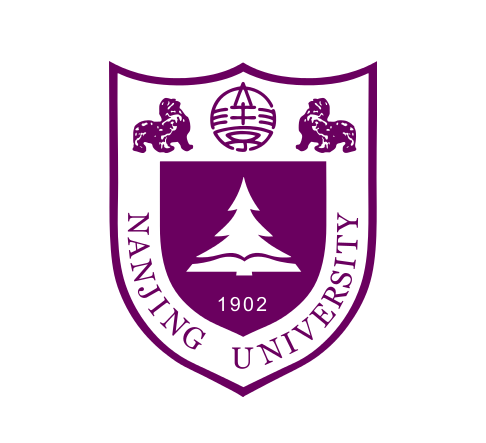Nanjing University (NJU)
| Nanjing University, one of China’s important extensive universities underneath the immediate supervision of the Ministry of Education, schedules from 1902 when it was called Sanjiang Normal School. Throughout the following years, it developed as Liangjiang Normal School, Nanjing Higher Normal School, National Southeast University, the Last Zhongshan University, and National Central University. On August 8, 1949, National Central University was renamed National Nanjing University. In October 1950, as required by the Ministry of Education, the title was transformed into Nanjing University (NJU). In 1952, as a result of the nationwide restructuring of colleges and universities, some instructional units like the School of Design and the College of Farming were separated from your college; meanwhile, it joined the Faculty of Liberal Arts and the School of Sciences of the University of Nanking founded in 1888. Its name remained when its campus shifted from Sipailou to Gulou.
NJU’s growth happens to be directly linked with the future of China and its own ever-changing society. Nanjing Higher Normal School, the predecessor of NJU, played an important part within the upsurge of Chinese nationalism following May Fourth Movement in 1919. Within the early 1920s, a group of Chinese communist forerunners using this university released the theory of Marxism to the general public. The Next National Conference of Chinese Communist Youth League was also placed here. Throughout the Anti-Japanese War, Pan Shu, Liang Xi and Jin Baoshan, distinguished teachers from the university (then known as National Central University), arranged the “Natural Sciences Forum” along with the “Democracy and Science Community”, which eventually resulted in the beginning of the democratic party “Jiu San Culture.” During the following Liberation War, the school is definitely in the front of the fight for democracy and nationalism. On May 20, 1947, students from National Central University initiated an “Anti-Starvation, Anti-Civil war, and Anti-Persecution” strategy, later known as the “May 20th Patriotic Students Movement.” Such a fact-seeking spirit continues to be taken forward for the era when the university was renamed Nanjing University. In May 1978, one scholar from the Philosophy Department published in the Guangming Daily articles entitled “Practice Will Be The Main Criterion for Assessment Truth” which evoked a heated debate to the “criterion of truth” and attracted nationwide attention. ·Achievements Having its multi-disciplinary applications and distinguished faculty, NJU leads the companies of higher learning in China. Statistics show that since 1992, a number of research papers by NJU university and individuals around the Science Citation Index (SCI) have placed the first among colleges in Mainland China for seven consecutive years. So did a number of the articles offered by international educational groups for ten years. Previously decade, NJU has acquired over 800 national, ministerial and provincial awards, including over 40 National Awards of Natural Sciences, Prizes of Science and Technology Progress, and Awards of Innovation. Since 2000, for instance, it’s received 11 National Awards of Natural Science (one First Prize, Ten-Second Prizes) and two of Research and Technology Improvement. From 1994 to the present, with regards to a number of the assignments awarded from the National Natural Sciences Fund and the National Social Sciences Fund, NJU continues to be one of the tops inside the ranking of the Chinese universities. NJU has made outstanding accomplishments in student education. Its current student body totals around 43,477 (12,655 undergraduates, 11,030 students). NJU students have been representing their cutting edge competition in various competitions outside and inside of China. In 1994 and 1995, the NJU debating team won the tournament in both the national and international debating contests; in 1996 and 2005, two titles were gained within the Global English Speech Contest in Britain. Students, when graduating from NJU, have a wide acceptance within the job market for their solid educational foundations and solid potentials for future development. With regards to teachers, NJU graduates have also achieved great success. So far, eight alumni were given the USA President’s Honor, and a few scientific conclusions were named after the persons who once analyzed or worked at NJU (e.g., “Zhou-Gong: Releasing Good-Improvements Hypothesis,” “Wu: Solidarity Concept,” etc.). In 1999, NJU was the primary comprehensive university whose undergraduate education was appraised by the Ministry of Education as excellent. NJU offers superior services for both training and research work. Its selection, one of the largest of its form in China, has an assortment of over 4.654 million volumes. On campus, there are 127 institutions, 98 interdisciplinary research facilities, and several different training and researching features including the Investigation Center, the Circle, and Information Center, and the Educational Technology Center. ·International Cooperation ·Future Prospects In May 2002, NJU celebrated its 100th anniversary and efficiently prepared the Centennial Service, the Celebrated Scientists’ Forum, and Talk with Professionals. These events were joined by more than 25,000 alumni, including guests at home and overseas (including 6 Nobel Prize laureates, more than 120 academicians, and around100 university presidents). Seven alumni were given the Centennial Achievement Gold Medal. Contribution from your alumni and other options came to RMB139 million. Inside the new millennium, NJU can deepen its reforms while holding on its practices. Looking at excellence and innovativeness, it’s headed to be a world-class thorough research university having a global perspective, and so it’ll enjoy an even more prominent role in China’s rise within the 21st century. |


